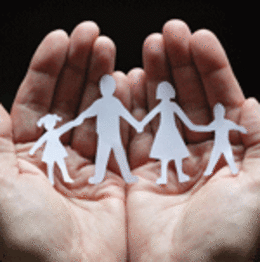
Having her first child was no problem for Michele LeMasney, 37, of Gloucester Township. But after a year of trying for a second, she and her husband, Mike, turned to fertility treatments.
“I figured my body had done it before, so I could do it again” says LeMasney. “My family wasn’t truly sympathetic at first because they didn’t really understand it. I was the first person in my family to have fertility issues.” It took nearly four years—and three miscarriages—but in the end she conceived and brought to term a daughter.
By now, infertility—and its many treatments—are well-known tropes among South Jersey parents and would-be parents. Most of us, whether we’re aware of it or not, know one of the 11 percent of American women younger than 44 with impaired fertility, many of whom spend years and thousands of dollars on hormone treatments, in vitro fertilization, artificial insemination, alternative medicine and other treatments. They have our sympathy. But when it comes to couples that, like the LeMasneys, have a child and then struggle to conceive a second or third—a condition known as secondary infertility—sympathy is often replaced by bewilderment at best, or indifference at worst.
“Even though [a couple may] already have one child, [dealing with secondary infertility] is still a very emotional experience,” says Dr. Louis Manara, a Voorhees infertility specialist who says secondary infertility cases comprise between 10 percent and 15 percent of his patients.
“It didn’t happen to us, but I know a lot of people internalize what’s going on. They blame themselves, they think they’re broken. Women especially feel this way. We grow up thinking this is something we’re ‘supposed’ be able to do,” says LeMasney who, in her role as adoption family support coordinator for the Open Arms Adoption Network in Cherry Hill, says she frequently works with couples who have “hit the infertility brick wall.”
The condition often takes patients by surprise—especially if they conceived easily the first time around, says Dr. Akas Jain, an expert in reproductive endocrinology at the Delaware Valley Institute of Fertility & Genetics in Marlton.
Yet, often there are simple reasons for the condition. The most common cause of infertility in women is age. Between ages 33 and 40, there is a decline in the number and quality of a woman’s available eggs. That can make conception increasingly difficult as a woman ages. Other potential causes include weight gain or weight loss, each of which can impact hormones and ovulation patterns. Infertility can also be caused by the development of fibroids, or noncancerous growths, in the uterus, which can block the fallopian tubes and make implantation very difficult. Scarring from a Cesarean section, a sexually transmitted infection or endometriosis can also have deleterious effects. As well, sometimes the problem can be traced back to the male partner, who may suffer issues including low sperm production or sperm immobility.
The causes may vary, but fortunately, specialists now possess an equally broad arsenal of potential treatments. From surgery to fix scarring or remove fibroids, to hormone treatments that induce ovulation, to in vitro fertilization, many options are available.
“The good news is that the strongest predictor of success [in overcoming infertility] is if you have already had a child,” says Dr. Stephen Sawin, a reproductive endocrinology and infertility specialist with South Jersey Fertility Center in Marlton. That should provide hope to those with secondary infertility. Says Jain, “If a woman is less than 35 years old, trying to get pregnant for at least a year on her own is a fair trial. Women who are over 35 should lower that timeframe to six months. However, this is a very personal decision. When in doubt, ask your doctor,” Jain adds. “You should always feel very open to bringing up the issue of infertility with your doctor—even as soon as right after your first child is born.”
In LeMasney’s case, after her second daughter was born, doctors told her she’d never conceive again: “They said I’d already had the maximum number of fertility treatments they could recommend without jeopardizing my health.” Ten years, two adoptive children and no fertility treatments—or birth control methods—later, the LeMasneys conceived their fifth child. “Imagine my shock and surprise,” LeMasney says. “I’m not deeply religious, but I do believe things happen for a reason. Through this journey, I’ve learned so much and been humbled by it all.”
Published (and copyrighted) in South Jersey Magazine, Volume 7, Issue 9 (December, 2010).
For more info on South Jersey Magazine, click here.
To subscribe to South Jersey Magazine, click here.
To advertise in South Jersey Magazine, click here.












